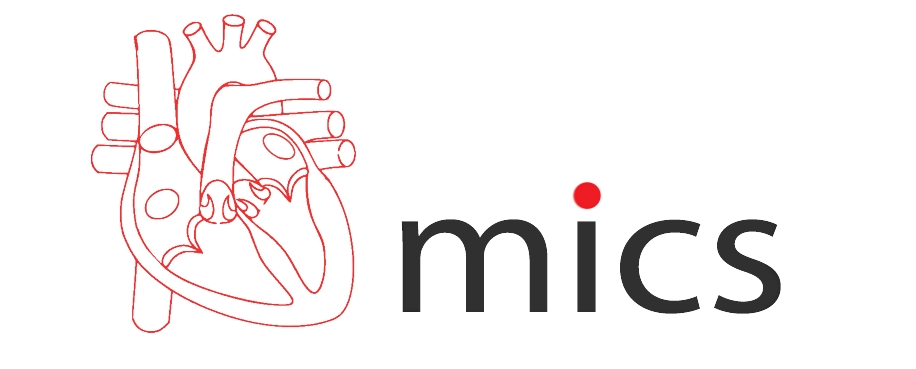A Healing Journey Shaped by Daily Decisions
Heart surgery changes how we look at life. It often brings with it a mix of relief, uncertainty, and quiet strength. While the surgery itself is a critical step in restoring health, recovery truly unfolds in the weeks and months that follow, shaped by the way we live each day.
Lifestyle changes what we eat, how we move, and how we rest can have a meaningful impact on how well and how gently we recover. This isn’t about sudden transformations or rigid routines. It’s about small, thoughtful adjustments that allow the body and heart to regain their rhythm at a steady pace.
At Micsheart, we specialize in minimally invasive heart surgery, helping patients heal faster and return to their lives sooner. But we also understand that true recovery doesn’t end in the hospital. It continues at home, in quiet moments, and in the choices made after discharge. This blog is a gentle guide to understanding how lifestyle shifts when made with care can support a smoother, stronger healing process.
Why Lifestyle Changes Matter
After heart surgery, the body works hard to rebuild itself. This process isn’t only influenced by medical treatment—it’s deeply affected by the environment we create for healing. Simple things like preparing balanced meals, taking slow walks, managing stress, or getting better sleep can create a healthier internal space for recovery to take place.

Research shows that patients who adopt supportive lifestyle habits after heart surgery tend to experience:
- Reduced complications
- Quicker recovery timelines
- Lower risk of re-hospitalization
- Improved energy levels
- Greater long-term heart function
These are not just statistics they reflect real experiences. Patients who take an active role in their recovery often feel more empowered, more in control, and more at peace with their healing journey.
Nutrition and Heart Recovery can Fuel the Healing Process
Food is not just nourishment it’s medicine. After heart surgery, the body needs nutrients to rebuild tissues, support the immune system, and maintain stable energy. A heart-friendly diet rich in whole grains, fruits, vegetables, lean proteins, and healthy fats can go a long way in reducing inflammation and supporting smoother recovery.

Some tips include:
- Prioritize home-cooked meals with less salt and fewer processed ingredients.
- Include foods high in omega-3 fatty acids, like flaxseeds or walnuts.
- Drink plenty of water and limit sugary drinks or alcohol.
Eating well doesn’t have to be restrictive. It’s about choosing foods that care for your heart as much as they satisfy your taste.
The Power of Movement: Gentle Steps Toward Strength
Exercise after heart surgery might feel daunting—but it doesn’t begin with intense workouts. It begins with something as simple as sitting up, standing, and eventually walking a little farther each day.
Movement helps:
- Improve blood circulation
- Strengthen the heart muscle
- Prevent complications like blood clots
- Restore confidence in your body
Walking, stretching, or guided rehabilitation exercises can all be helpful. The goal is not perfection it’s consistency. With time, these gentle steps grow into lasting strength
Stress Management: Healing the Mind Alongside the Body
Recovery is not only physical it’s emotional. After surgery, it’s common to feel anxious or uncertain. Stress can place added strain on the heart and slow down healing. That’s why taking care of your mental wellbeing is just as important as physical rest.
What can help:
- Breathing exercises or meditation, even just for 5–10 minutes a day
- Spending time outdoors or with loved ones
- Speaking to a counsellor or joining a support group if needed
Creating a calm mental space gives your heart a better chance to heal fully and gently.
Quitting Smoking and Alcohol: Giving the Heart a Fresh Start
For those who smoke or consume alcohol regularly, this part of recovery is deeply important. These substances can interfere with healing, affect blood pressure, and increase the risk of future cardiac issues.
The good news is that the body begins to repair itself the moment these habits are stopped:
- Within 24 hours of quitting smoking, heart rate and blood pressure improve
- Over time, lung and blood vessel function return to healthier levels
- Abstaining from alcohol reduces strain on the heart and liver
Support is available, and you’re not alone in making these changes. Many patients find that heart surgery gives them the clarity and motivation to start fresh for themselves and their families.
Sleep and Recovery: The Silent Healer
Sleep is one of the body’s most powerful tools for recovery. During restful sleep, the heart rate stabilizes, blood pressure regulates, and the body releases hormones that promote healing.
Post-surgery, patients may experience disrupted sleep due to discomfort or anxiety. Simple adjustments like:
- Following a consistent sleep schedule
- Limiting caffeine after afternoon hours
- Creating a calm, quiet bedtime routine
can support more restful nights and better recovery outcomes.
How Micsheart Supports Recovery That Goes Beyond Surgery
At Micsheart, our approach to cardiac care is deeply patient-centered. By offering minimally invasive robotic heart surgery, we aim to reduce recovery time, minimize pain, and allow you to return to your normal life faster and with greater comfort.
But we also know that surgery is only one part of the picture. That’s why our team provides guidance on lifestyle changes, cardiac rehabilitation, and emotional wellbeing so you’re never navigating recovery alone.
Our goal is to stand beside you in every step before, during, and long after surgery—helping you make decisions that protect and strengthen your heart.
Conclusion: A Gentle Road Toward Renewal
Healing after heart surgery isn’t about racing toward recovery. It’s about embracing each day with care and compassion for your body, your mind, and your heart. Lifestyle changes may seem subtle, but their impact is lasting.
Whether you’re preparing for surgery or already in recovery, know that change is possible. And it doesn’t require perfection just intention. Every healthy meal, every slow walk, every deep breath contributes to a stronger, more stable tomorrow.
You’re not alone in this. With each gentle step, you’re moving forward—with strength, with care, and with heart.

Dr. Sathyaki Nambala
🗣 English, Hindi
Get Directions

